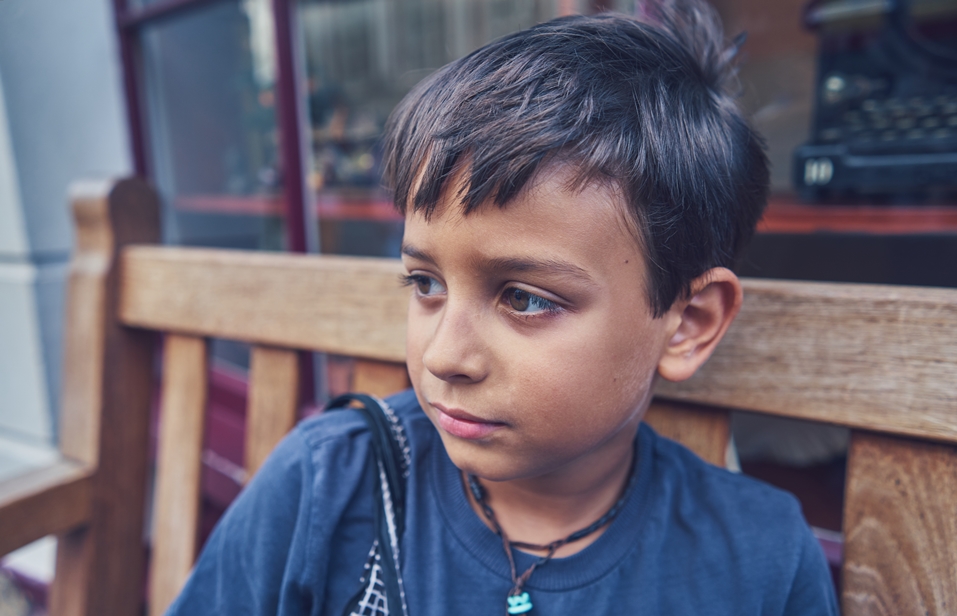We all remember such instances where people have not taken us seriously despite the fact that we have clearly expressed our opinion or desires. There have also been times when we couldn’t express our desires and intentions openly and regretted it later. Sometimes, weexpress ourselves in a very rude or aggressive way and later feel guilty about it.
If these instances happen regularly they might rob us of happiness, suck the zeal out of our life, warmth from our relationships and peace from our mind. Furthermore it fills our life with frustration and conflicts.
Anita (name changed), a home maker says “ When I cannot express my intentions regarding a particular issue thinking how others will judge me or perhaps because of me my husband, kids or in-laws may face inconvenience, it disturbs me and I feel overburdened. It makes me don’t I owe a life to myself or a choice to myself. But I don’t know how else to deal with this because I don’t know any other way. I have seen my mom living this way, I see my mother-in-law living this way, I see my relatives and friends this way. I have seen them compromising on themselves their needs, intentions and desires and keeping their family, kids and relatives before them. Moreover I also see them expecting the same from me. I try and fulfill them. So I go to social gatherings, I don’t want to go but when I am confronted with the fact that those relatives may later give nasty remarks or my family members will get very upset I decide to bend and go. There are people with whom I would want to keep ties but I have to because since childhood whenever I have expressed such a desire I was told never say like this it creates bad impression so I don’t. There are times when I don’t approve of many things but I have to accept because others want it from me and if I don’t they may not like it or get hurt or give mean remarks. There are also days when I want to meet my friends and not go to some distant relative’s family function but can’t because I feel scared what my family will think of me. I do not like life this way but I don’t know how else to be”.
Nimesh (name changed), an engineer working in MNC says “ I have a tendency to get irritated very easily and I very often without realizing throw tantrums and behave rudely. Due to this I have lost friends, have conflicts at work and home and it also makes me feel very guilty later on. I know I have to calm down but and I try but that doesn’t happen”.
Kriti(name changed), a charted accountant says “Ifeel guilty all the time, even when I know I am not doing anything wrong. Being yourself requires a lot of courage. I really don’t know how to deal with these”.
Like Kriti, Nimesh and Anita many of us have had similar experiences with ourselves or with others but the issue is even though its everywhere doesn’t mean we have to live with this. We can step out from our comfort zone and experiment with various ways and styles of communication. Assertiveness is one of the most effective style of communication. It is the ability to communicate opinions, thoughts, needs, and feelings in a direct, honest, and appropriate manner. It involves knowing yourself, your needs, wishes, desires and dreams and standing up for them. It requires you to know about your individual rights which were perhaps were not taught that it belonged to us (like we have the right to be the ultimate judge of we are and what we do, right to offer no reasons or excuses for justifying our behaviour, right to make mistakes and be responsible for them, right to be illogical in making decisions, right to say I don’t know or I don’t understand or don’t care etc) in the same way respect the same of others.
Assertiveness is not only a style of communication but style of life as it empowers you with the power that it is you, who is ultimate judge of yourself and warns you regarding giving this charge over yourself to others. It allows you to treat yourself with respect and spread this beam of respectfulness to others. It gives you more control over your life at the same time it also increases your responsibility towards yourself. It pushes you to speak up for yourself, deal with your sense of inferiority, inadequacy etc which pulls you back from taking a stand for yourself.
It is important because everything starts with yourself. You can provide love, warmth, happiness, motivation, support only when you are intact. As the popular idiom says “You can’t pour from an empty vessel”. So it’s important to nurture yourself, develop yourself and take a stand for yourself because it is through your actions you make a difference and for performing that action you and your desire have to be present. So get up, be assertive and take a stand for yourself, your dream, wishes and desire and your stand will inspire others to take a similar stand.
Rohit (name changed) a marketing director in MNC says “being able to express herself, her opinions, intentions and desires has led to growth in her career and improvement in her relationships.”
Madhuri (name changed ) a home maker says “ initially I had difficulty inculcating sense of responsibility in my children and also but after consulting a school psychologist I realized that children needed experiences to grow up and when I was getting over protective and doing everything for them beforehand like making sure their homework is done, cleaning their room when its dirty etc, I was depriving them of their experiences at the same time I was also overburdened and frustrated because my entire day was spent in taking charge of things for which I owes no responsibility. Furthermoreall this left her with no time for myself. But after learning to be assertive and set limits I notice that my children are learning to handle their own issues themselves and its lovely experience seeing them grow. It has given me wisdom to let them grow in their own way and at their own pace and to respect them and their struggles and also it has given me time for myself, my hobbies and dreams.”
So, assertiveness would not only enhance your relationship with yourself but also with others because it would break your inhibitions and resistances to express yourself, to communicate what you want, desire or intend and also respect needs, wishes and desires of others even though they are different from us and would pull you to negotiate so that both of you wins.
Assertiveness as a Skill – Akanksha Mohta











